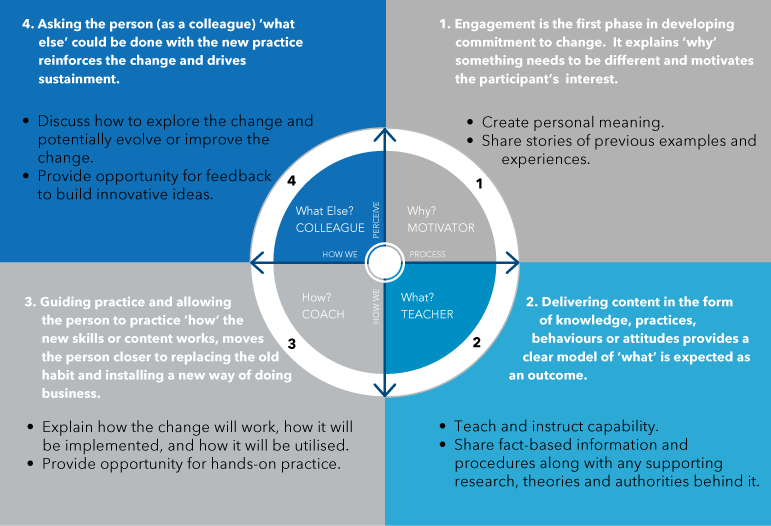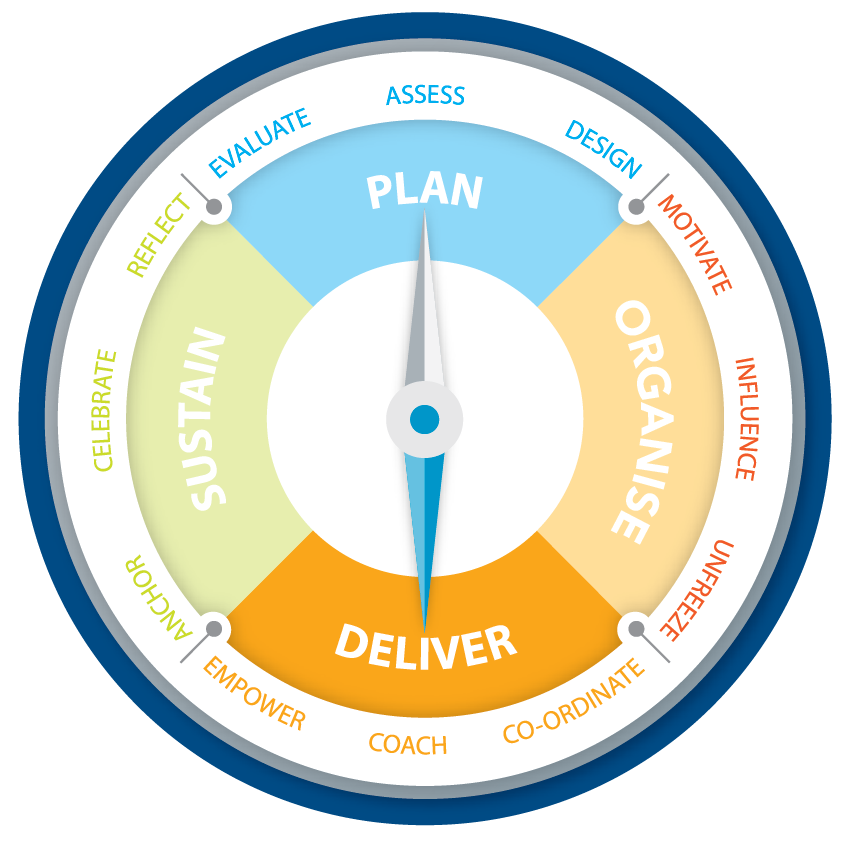
Coach with G.R.O.W
The G.R.O.W coaching model for change projects is an active coaching framework used by many organisations, particularly for developing leaders in their early careers. It supports team members in allowing the identification of challenges and developing solutions that help drive accountability.
Leaders can incorporate change influencing questions into their use of G.R.O.W.
| Stage of the G.R.O.W. model | Suggested questions |
| Goal | What do you understand this change to be? Tell me what you believe are the purposes and objectives of this change? How will this change benefit you, your team and the organisation? ___________________________ |
| Reality | Do you want to be a part of this change? Do you believe that you have the skills and capability to be able to implement this change? Could there be anything that is hindering you to embrace the change? ___________________________ |
| Options or Obstacles | What further actions do you need to undertake to adopt this change? What support do you need to be able to undertake this change? Who do you believe is a role-model with regard to this change? ___________________________ |
| Will or Way Forward | How committed are you to undertaking these actions? How will these actions assist you to achieve the change? How will you and I determine if these actions have been a success? ___________________________ |
Leadership roles in coaching: motivator, teacher, coach and colleague
Facilitation skills are key to ensuring effective change outcomes. Change happens one person at a time. After you have gained the trust of your team and have good rapport, you are able to employ coaching techniques that bring the team members with you on the change journey. When you are coaching team members there are four key roles that a change leader takes on: motivator, teacher, coach and colleague.
This influencing and leadership coaching cycle requires more sophisticated skills and experience than G.R.O.W. and will require practice to use effectively. Many professional change leaders and facilitators use this approach to very good effect. You can review Dr McCarthy's approach in greater detail at http://www.aboutlearning.com/.
The coaching cycle (by Dr Bernice McCarthy) summarised below provides a model for engagement of the team and allows for the team to contribute to the best outcomes:

In the earlier 'influence' activity we talked about people's preferred communication style. When coaching, people will respond better when you use their preferred communication style. Your use of language, to which they relate most easily, is also effective in building rapport and getting the message across. Remember, a change leaders job is not finished until the new practice is embedded and self-sustaining within the group or organisation.
|
Take the time to understand your team members’ communication styles i.e. Do they like to receive information by reading
through manuals or quick reference guides, are they more interested when someone talks to them and they get a chance to ask questions, or
do they prefer to be hands on and practice using the new skill? Adapt your approach to meet their preferred style.
|
● Facilitating a scenario (148kB download)
| ©1999 - 2026 Sandar Management Services Pty Ltd |
